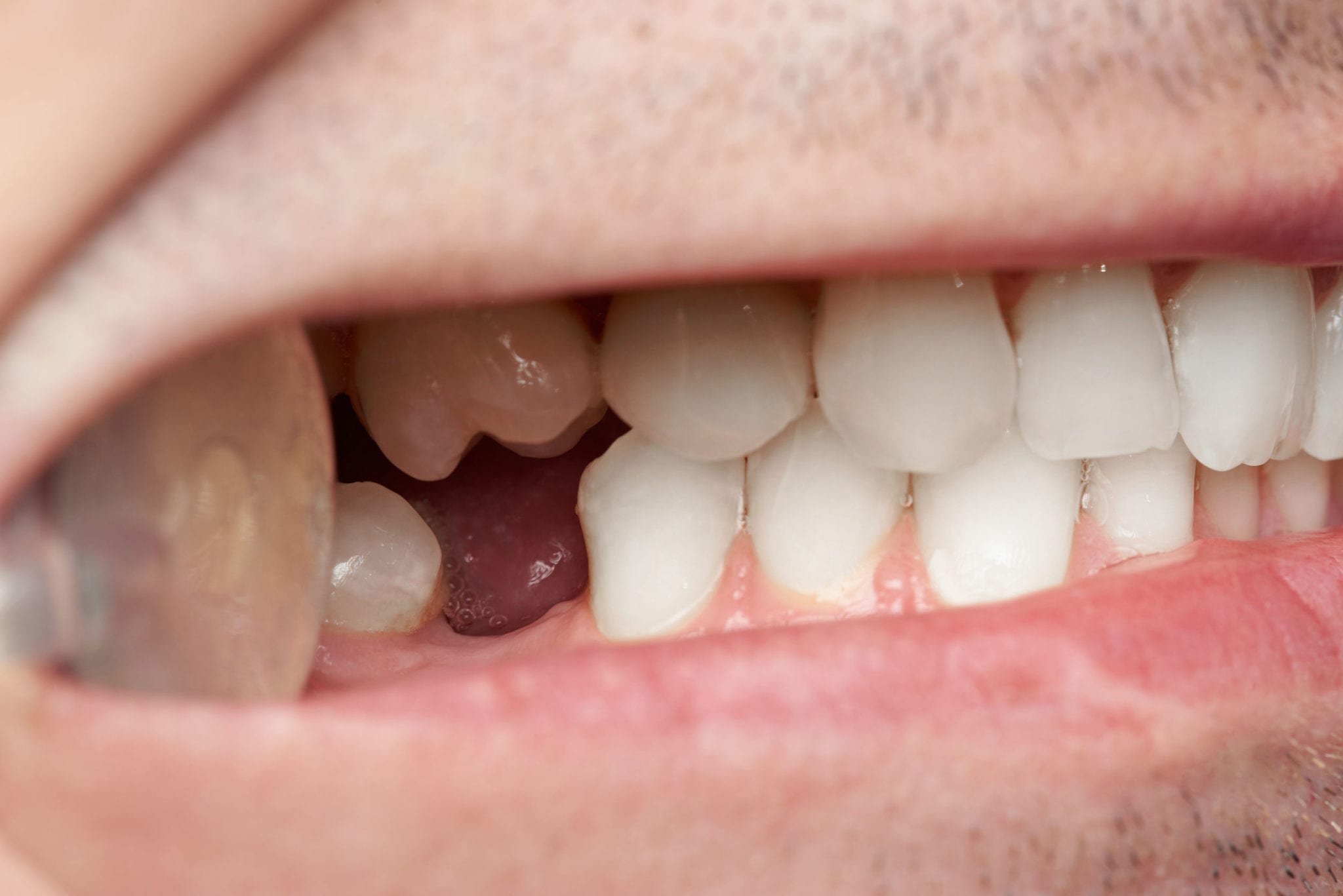
If you are missing a tooth, you may think it’s no big deal, especially if it doesn’t show when you smile or talk. However, failing to replace a missing tooth can have significant physical, cosmetic, and psychological effects that will cost you in the long run.
In this post, we’ll talk about the consequences of not replacing a tooth and discuss several replacement options that are available to you.
Physical Effects of Not Replacing a Tooth
When you don’t replace a missing tooth, several things can happen in your mouth that lead to even bigger oral health care issues.
Malocclusion. After a while, the teeth next to the gap created by the missing tooth will move closer together. This may not seem like a bad thing at first, but it really is.
Why? Because the surrounding teeth will not be able to adequately fill the space, and when they move it will throw off the alignment of the rest of your teeth. This is a condition known as malocclusion, and it can lead to the following problems:
- Crossbite
- Overbite
- Jaw pain
- Chewing problems
- Greater risk for decay
To correct malocclusion, you may need braces or orthodontic surgery. These treatments can cost much more than simply replacing a missing tooth.
Chewing problems. When you have a missing tooth, you may not be able to properly chew your food. Food that is not sufficiently chewed can lead to problems like acid reflux and lack of proper nutrition. Even teeth that aren’t visible when you talk or smile are essential for chewing.
Cosmetic Effects of Not Replacing a Tooth
Bone density loss. Over time, a missing tooth can cause loss of bone density along your jaw. This can cause your cheeks and lips to prematurely sag. Replacing a missing tooth will help retain the shape of your face.
Cleaning difficulties. As teeth shift to fill the space left from the missing tooth, they may become harder to clean. This can lead to staining and plaque buildup, which can also lead to tooth decay and further tooth loss.
Cracks and chips. The loss of a back tooth can put extra pressure on front teeth, causing them to crack or chip. These issues with your front teeth can take a toll on your smile.
Speech problems. A missing tooth can also affect the way you speak. You may not be able to pronounce words correctly, or you may accidently spit or whistle while you are speaking. This can cause you to feel embarrassed and may even cause you to withdraw from normal activities.
As you can see, many of these so-called cosmetic problems can actually end up becoming physical problems as well.
Psychological Effects of Not Replacing a Tooth

Self-consciousness. In our image-obsessed culture, missing teeth are often portrayed in the media as a sign of indigence or unintelligence. If your missing tooth is in an area that shows when you smile, you may hide your smile from others because you feel self-conscious. Hiding your smile can make you seem less approachable and not as friendly. Which can lead to…
Loss of social interaction. If you feel self-conscious about your smile and start cloistering yourself, it can cause you to miss out on social interaction. This, in turn, can increase your stress and feelings of loneliness.
If you have a missing tooth in your 50s and you live to a normal life expectancy, this means you could deal with the mental effects of a missing tooth for three or more decades. Do you really want to face self-consciousness over a missing tooth for that long?
Ways to Correct a Missing Tooth
There are several different methods for fixing a missing tooth.
Implant. One method is using a dental implant. Over the course of several weeks or months, a titanium post is surgically placed inside your jaw to hold a denture or crown. You will have plenty of time to adjust to the new crown or denture, which will look and feel like your original tooth. The implant will fuse with your jaw bone, making a strong bond that prevents bone loss.
Bridge. A dental bridge spans the gap created by the missing tooth. A false tooth is cemented to two crowns on either side. You need strong natural teeth on either side of the gap to have a successful bridge. Bridges require extra oral hygiene and more frequent dental cleanings.
Denture. A partial denture has a base colored like your gums with false teeth on top. It will slide onto your other teeth and clasp onto them to stay in your mouth. It is easily removeable and a more affordable option than a bridge or dental implant.

Get in touch with us to discuss the best solution for you. Don’t allow your smile to suffer any longer – schedule a consultation today.






